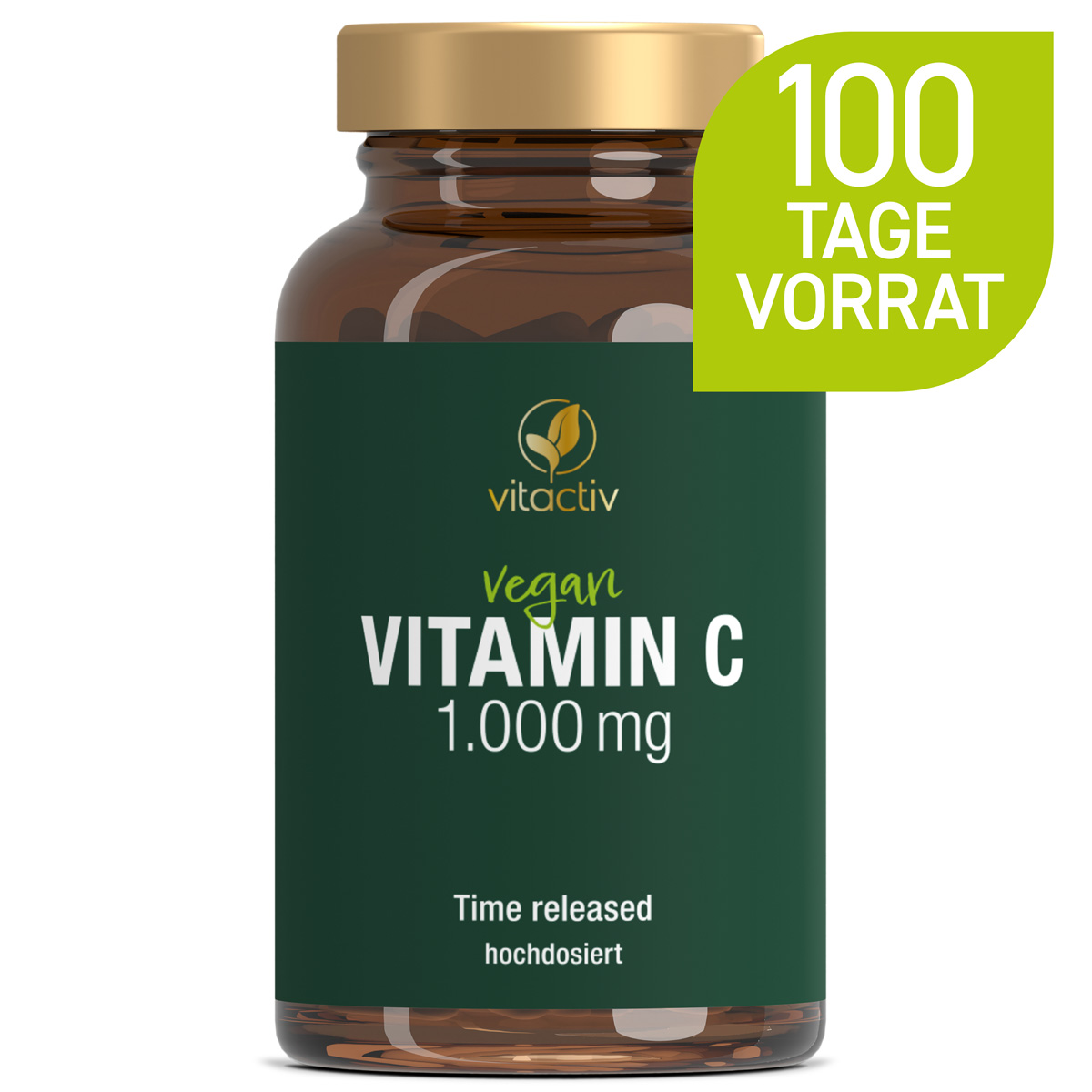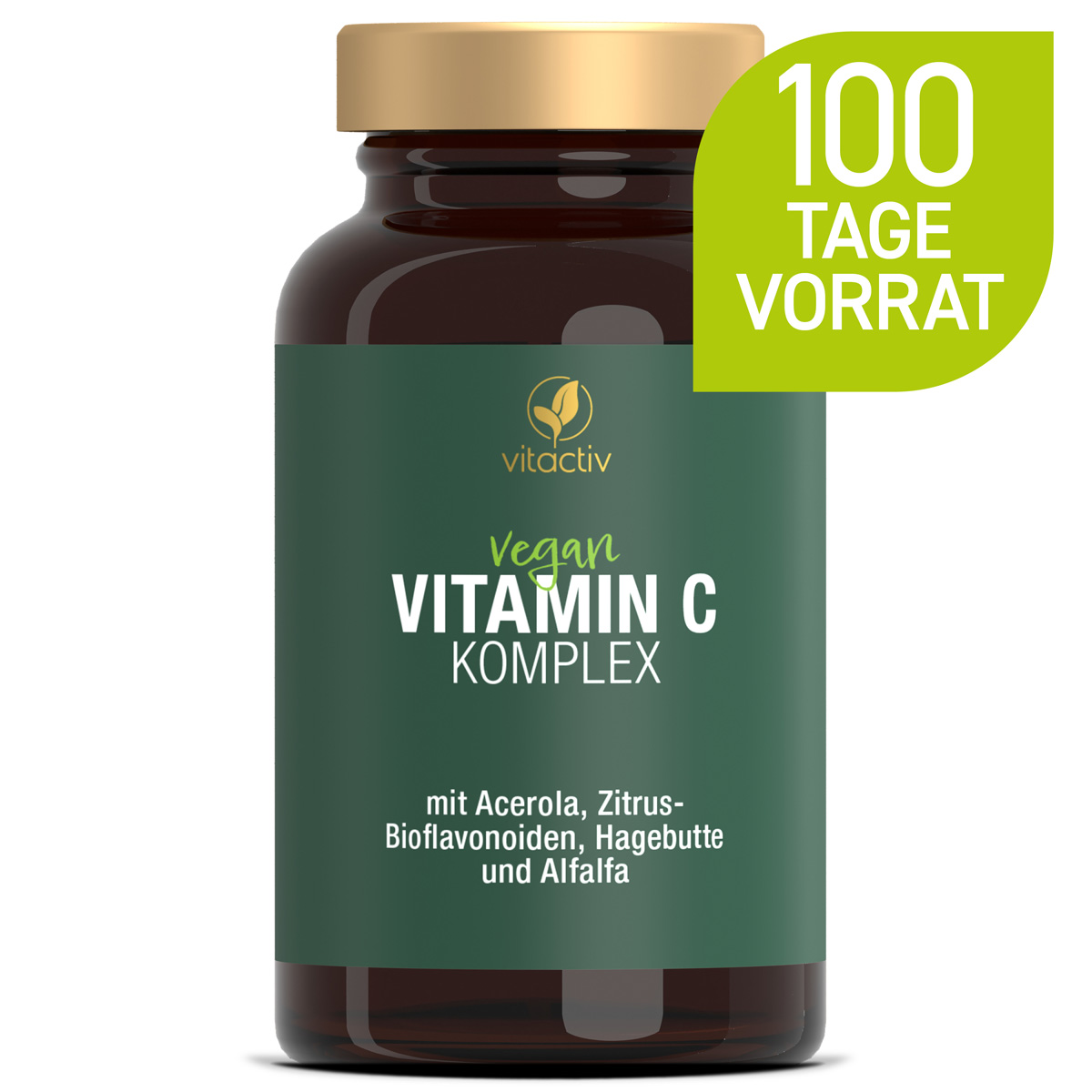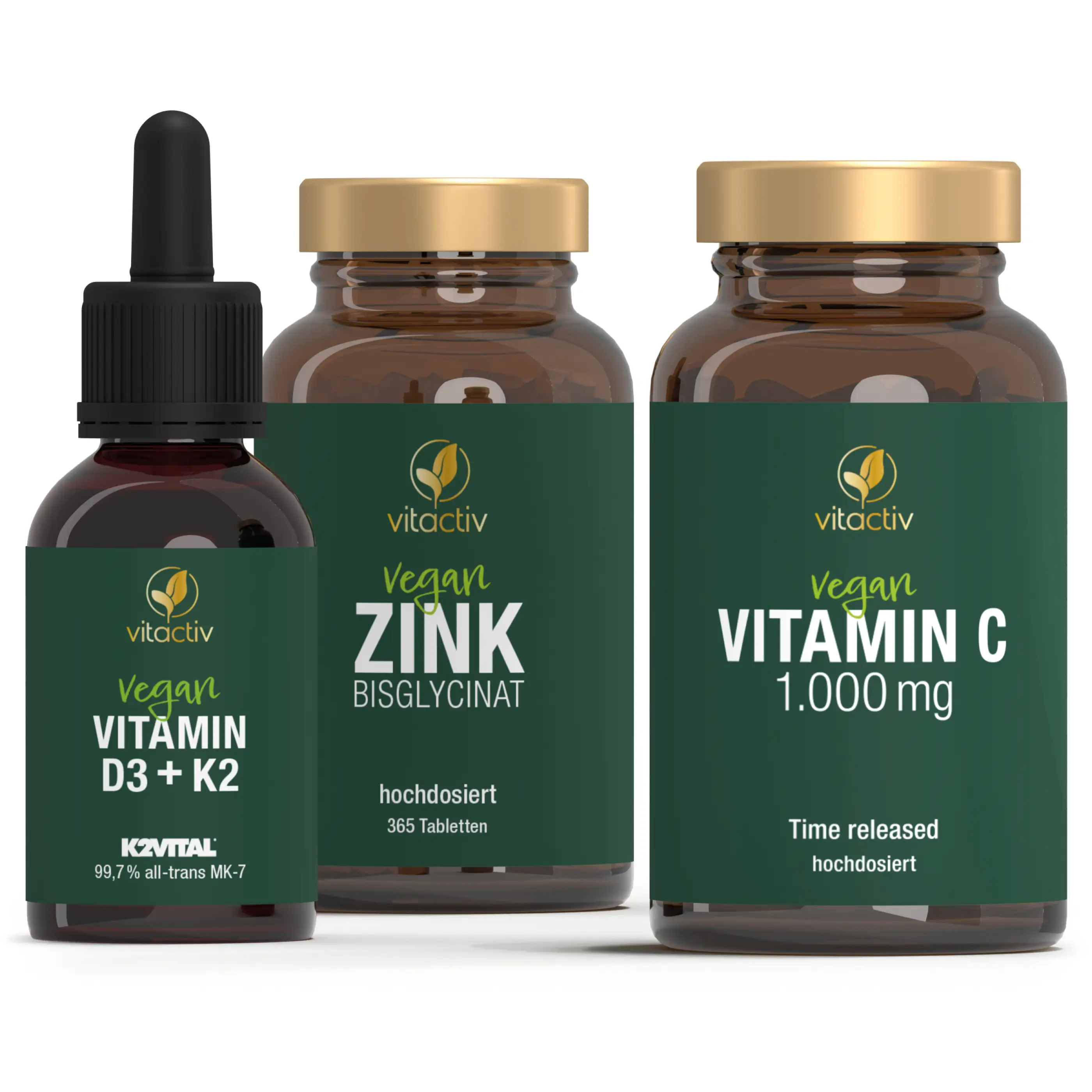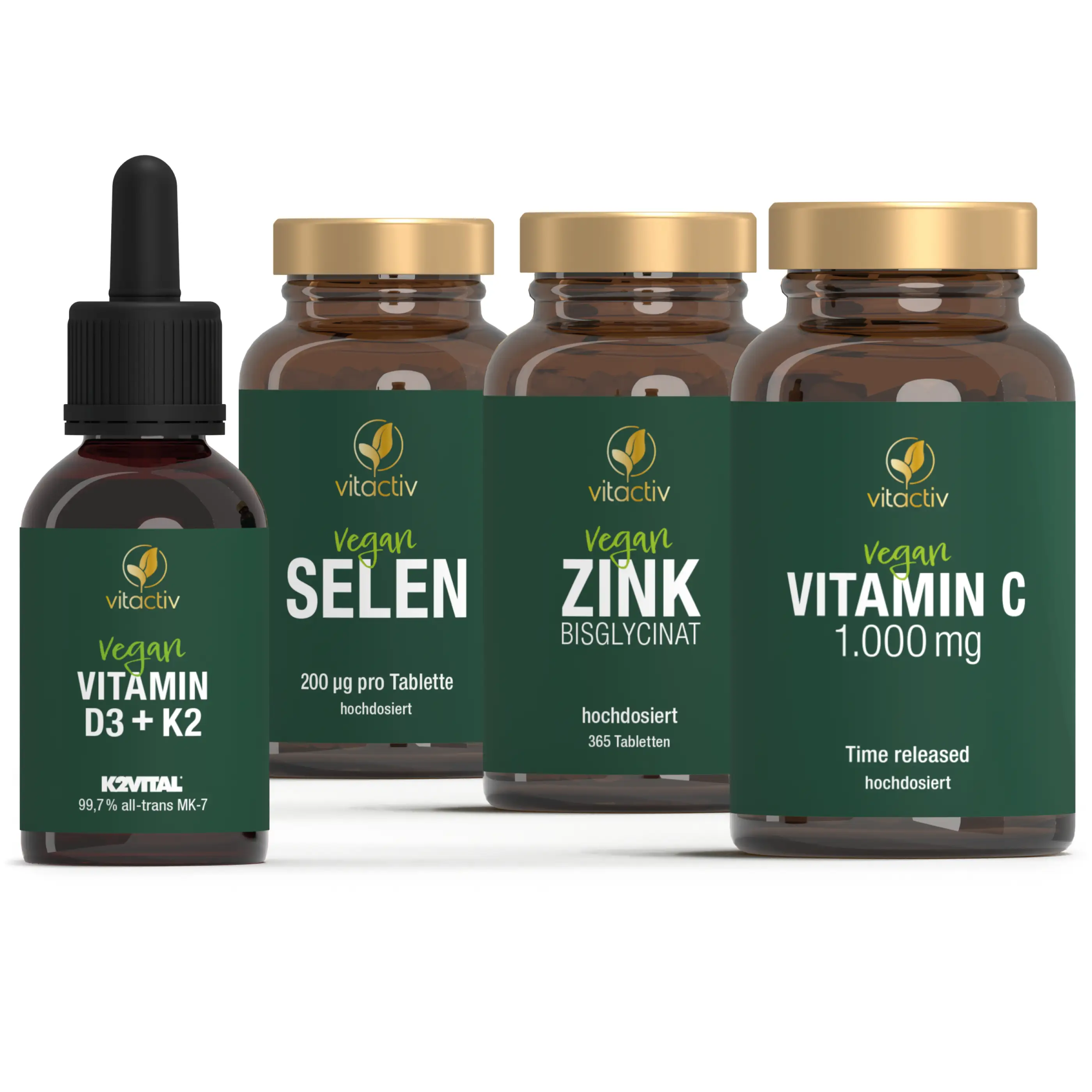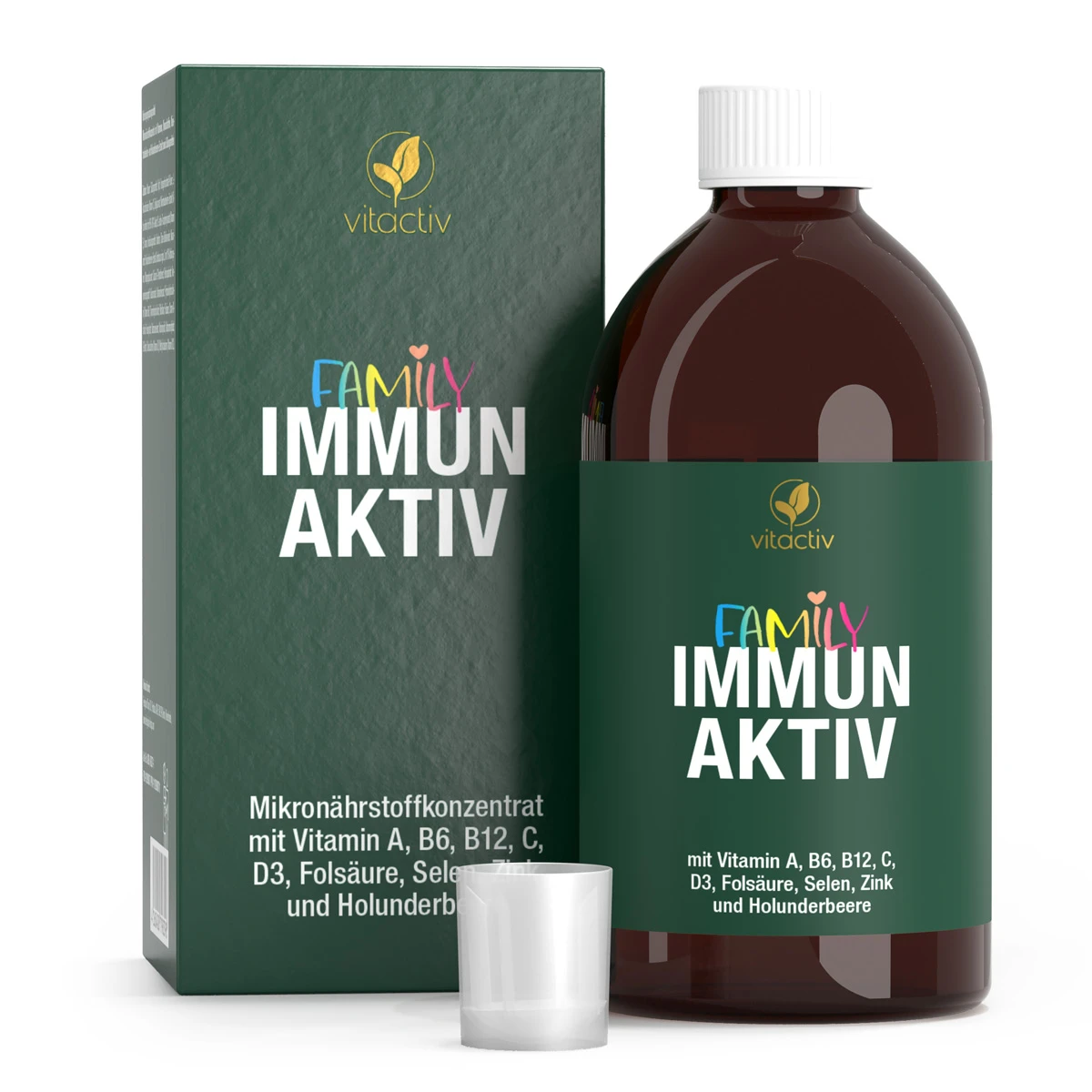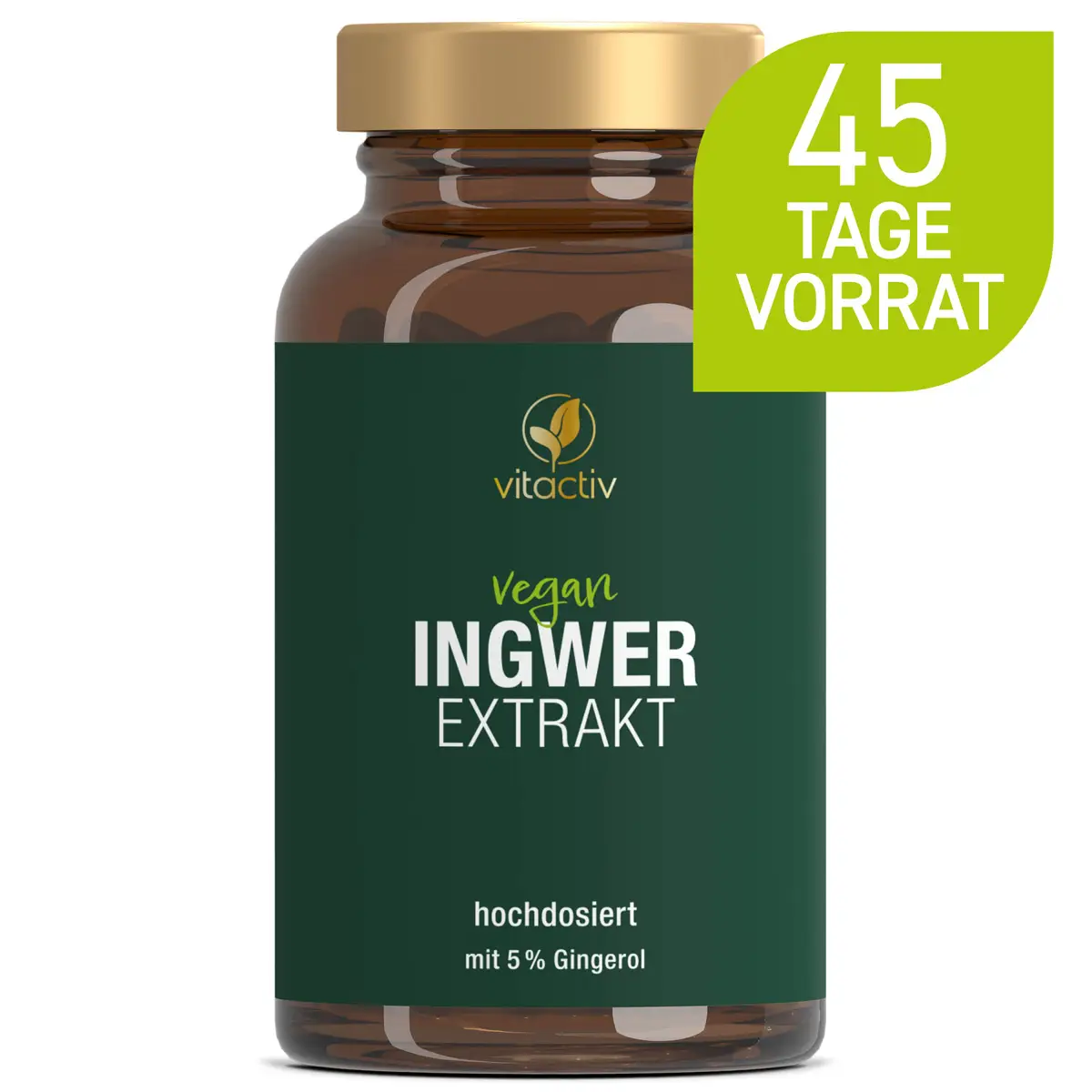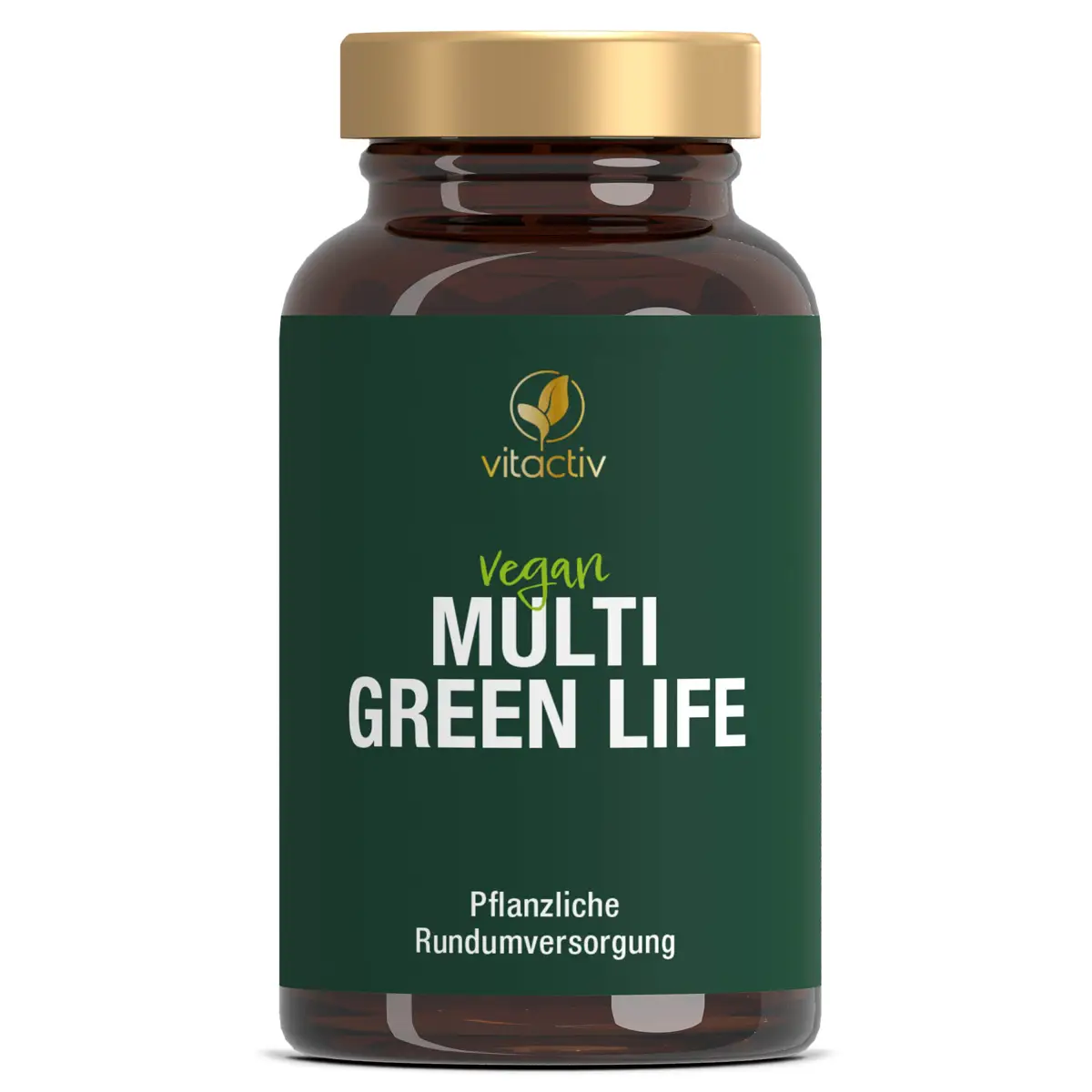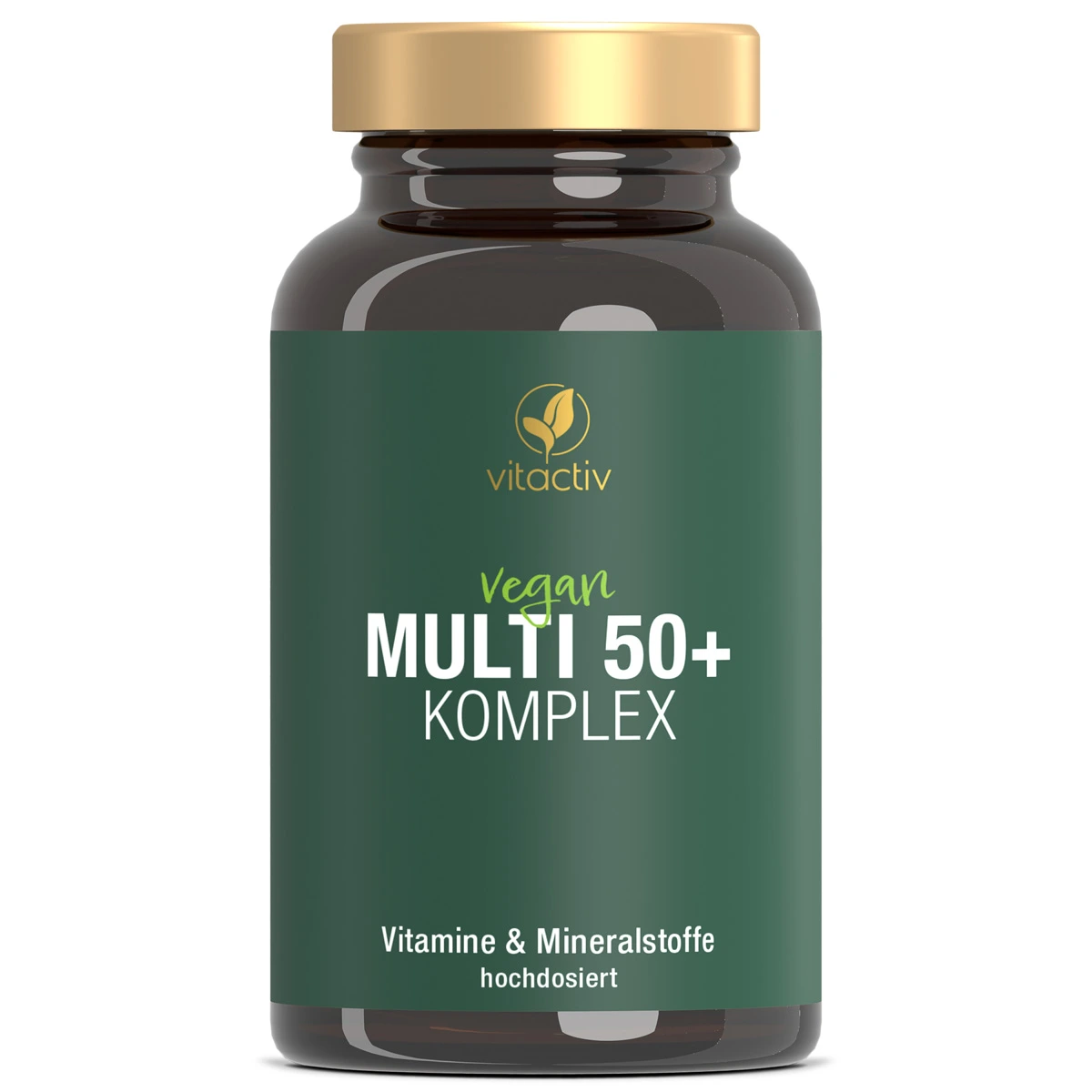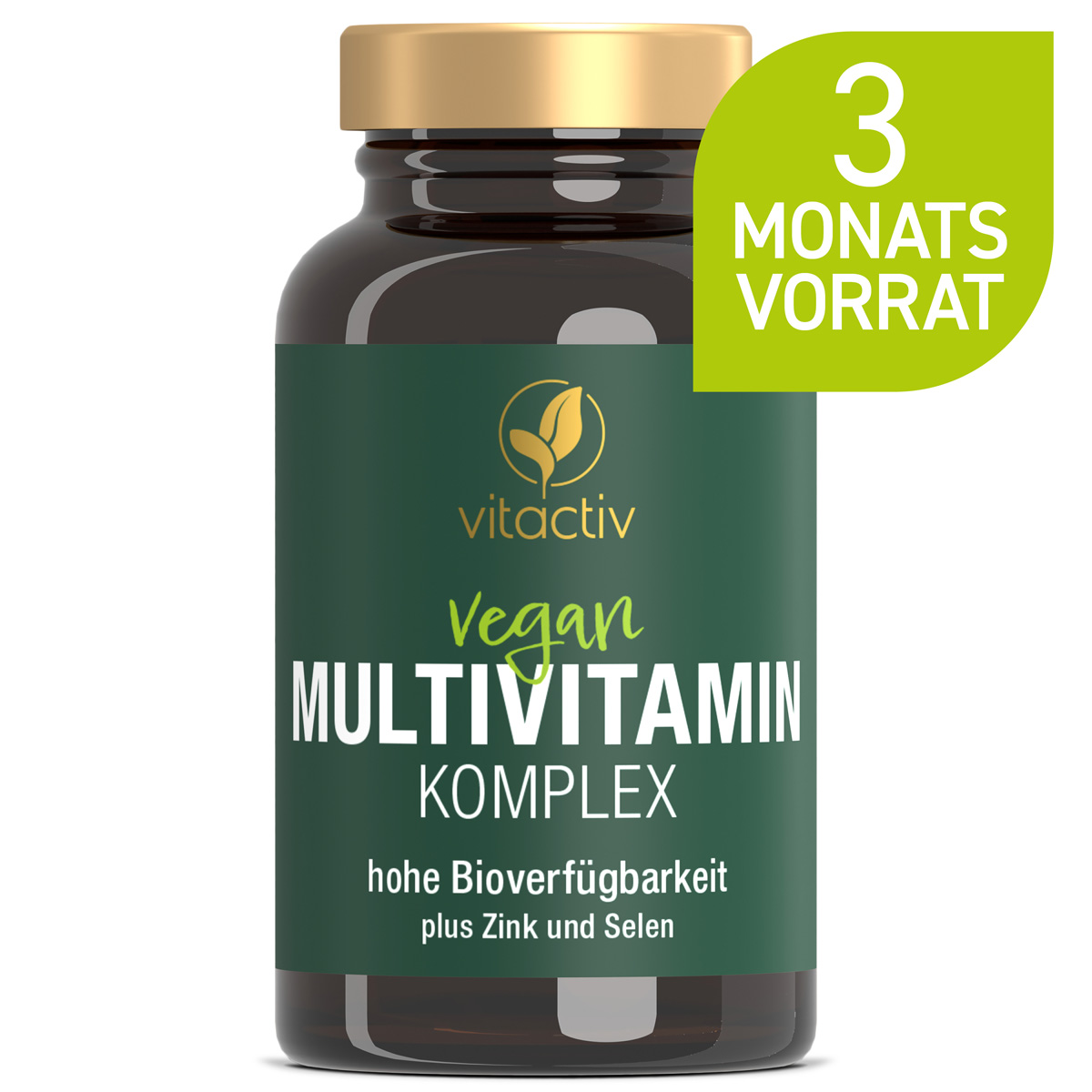Buy vitamin C
Content: 0.14 kg (€78.50* / 1 kg)
€10.99 €12.99
(€78.50 / 1 kg)Content: 0.143 kg (€106.92* / 1 kg)
€15.29 €17.99
(€106.92 / 1 kg)Content: 0.3 L (€66.63* / 1 L)
€22.49 €24.99
(€74.97 / 1 L)Content: 0.0462 kg (€348.27* / 1 kg)
€18.99 (€411.04 / 1 kg)Content: 0.0738 kg (€304.74* / 1 kg)
€22.49 €24.99
(€304.74 / 1 kg)Content: 0.045 kg (€279.78* / 1 kg)
€12.59 €13.99
(€279.78 / 1 kg)Content: 0.045 kg (€339.78* / 1 kg)
€15.29 €17.99
(€339.78 / 1 kg)Buying vitamin C - all the information you need
Would you like to buy vitamin C? And want to know more about vitamin C products? Then the Feelgood Shop is the right place for you. Here you will find answers to questions such as "How does vitamin C contribute to our health?", "How much vitamin C do I need?" or "What is ascorbic acid and what different types are there?". Let's go ...
How does vitamin C contribute to our health?
The vital vitamin C has an antioxidant effect by scavenging free radicals that can be caused by UV radiation, air pollution, tobacco smoke, alcohol, physical and mental stress, for example. The risk of damage to health is therefore reduced thanks to vitamin C.
Although human cells have a natural ability to protect and repair themselves, excessive oxidative stress (free radicals) can severely disrupt this protective function. This accelerates the ageing process of our cells. This can result in all kinds of damage:
- Allergies
- Cardiovascular problems
- Problems with the eyes
- Memory/concentration problems
- Joint problems
- Premature skin ageing
Incidentally, cell protection also has a positive influence on our immune system. The connection becomes clear when we consider a typical situation. You may be familiar with this: all hell is breaking loose at work - and now, of all times, you have a cold on the way. Your stress at work can put an additional strain on your immune system by increasing oxidative stress. The good news is that vitamin C naturally supports the human body's cell protection against oxidative stress.
And that's not all. The EFSA (European Food Safety Authority) has summarized the statements that are permitted about vitamin C with regard to its health effects:
Vitamin C ...
- contributes to the normal function of the immune system - even during and after intensive physical activity
- contributes to normal collagen formation for normal blood vessel function
- contributes to normal collagen formation for normal bone function
- contributes to normal collagen formation for normal cartilage function
- contributes to normal collagen formation for normal gum function
- contributes to normal collagen formation for normal skin function
- contributes to normal collagen formation for the normal function of the teeth
- contributes to the normal function of the nervous system
- contributes to normal energy metabolism
- contributes to normal psychological function
- contributes to the protection of cells from oxidative stress
- contributes to the reduction of tiredness and fatigue
- contributes to the regeneration of the reduced form of vitamin E
- increases the absorption of iron
As you can see, vitamin C can be described in good conscience as a health all-rounder. Of all the vitamins, it is one of the most versatile: it is good for the immune system, the psyche, the nerves, the metabolism and much more. If you want to know what your individual daily vitamin C requirement is, read on ...
Vitamin C requirement
What is your individual vitamin C requirement per day? The following list - based on the recommendations of the German Nutrition Society (DGE) - will show you:
Infants 0 to under 12 months: 20 mg/day
Children up to 15 years:
- Children 1 to under 4 years: 20 mg
- Children 4 to under 7 years: 30 mg
- Children 7 to under 10 years: 45 mg
- Children 10 to under 13 years: 65 mg
- Adolescents 13 to under 15 years: 85 mg
Adolescents/adults female:
- Adolescents 15 to under 19 years: 90 mg
- 19 years and over: 95 mg
- Pregnant women from the second trimester: 105 mg
- Breastfeeding mothers: 125 mg
Adolescents/adults male:
- Adolescents 15 to under 19 years: 105 mg
- 19 years and over: 110 mg
Smokers:
- Men: 155 mg
- Women: 135 mg
- Pregnant women from the 4th month
- 105 mg
Breastfeeding mothers: 125 mg
A person's vitamin C requirement depends on three criteria: Age, gender and life situation/change. For example, a male adult generally has a higher vitamin C requirement than a female adult. However, certain factors can increase the requirement, e.g. if you are pregnant or breastfeeding. Smokers also belong to the so-called risk groups - as do athletes. If you belong to the risk group, it is advisable to cover your requirements through a balanced diet and/or by taking supplements.
Pregnant women
Expectant mothers should pay particular attention to their vitamin C requirements. This is because a vitamin C deficiency can increase the risk of the amniotic sac bursting prematurely. However, the foetus is also dependent on an adequate supply of vitamin C, among other things for the child's brain development. The vitamin is supplied via the umbilical cord, so that the expectant mother's requirement is correspondingly increased. The requirement for pregnant women from the 4th month is 105 mg vitamin C daily.
Breastfeeding mothers
Breastfeeding mothers also have an increased need for energy and nutrients. This is partly because breastfeeding is very energy-sapping and partly because vitamin C is passed on to the baby through breast milk. The daily requirement here is 125 mg. It should be noted that vitamin C is not only of great importance for the immune system. Vitamin C also improves the absorption of the trace element iron. An undersupply of iron can lead to deformed bones in infants and porous bones in breastfeeding mothers.
Smokers
Tobacco smoke destroys body cells by causing oxidative stress (free radicals) in the body. Vitamin C helps to protect cells from this oxidative stress. Smokers therefore have an approx. 40% higher requirement of vitamin C: male smokers need 155 mg of vitamin C daily, female smokers 135 mg. A varied diet cannot do any harm here either.
Vitamin C requirements for athletes
Vitamin C is a water-soluble vitamin. It cannot be stored in the body and is quickly excreted through urine and sweat. Because athletes usually sweat a lot, they also have a correspondingly higher vitamin C requirement. In addition, our bodies are exposed to oxidative stress during intense physical activity.
The same applies to people who work hard physically and people who are under enormous mental strain at work.
People who work rotating or night shifts can also use more vitamin C. As their natural sleep-wake rhythm can be disrupted, headaches, poor concentration and tiredness are not uncommon. Vitamin C can help with nerves, psyche and alertness.
The daily vitamin C requirement for people under heavy physical and/or mental stress is not precisely defined and should be individually adjusted. As a rule of thumb, you should not exceed 1,000 mg of vitamin C per day. Higher doses can cause flatulence and diarrhea. People who are prone to forming kidney stones should also not exceed a regular daily intake of 1,000 mg.
Buying vitamin C products
Vitamin C products are available in various forms, e.g. as capsules, tablets or drops. In the Feelgood Shop you will find a variety of high-quality vitamin C supplements - and therefore the right product for you.
The VITAMIN C 1000 mg Time Released tablets are a high-dose vitamin C supplement. They impress with their time-released vitamin C depot effect. One tablet is enough to provide you with a high dose of vitamin C throughout the day. The many positive reviews in our store speak for themselves.
Like depot capsules, the VITAMIN C buffered capsules also have a depot effect; one capsule per day is sufficient. The patented Ester-C is pH-neutral and therefore extremely gentle on the stomach.
The MULTI 50+ capsules with a total of 23 vitamins, minerals and trace elements are available for all-round care including vitamin C. 2 x 1 bite-sized capsule a day cover the daily requirement of vitamin C for an adult.
Buy products in your Feelgood Shop - and let the high quality and effectiveness convince you! The reviews that our customers have left on the product pages will also be helpful.
What is ascorbic acid and what different types are there?
Would you like to do something to protect your cells from oxidative stress, for example? Vitamin C supplements supply the body's cells with ascorbic acid, which supports this cell protection. Ascorbic acid is an organic, colorless and odorless acid. Ascorbic acid (or L-ascorbic acid) is also known as vitamin C. Both terms - ascorbic acid and vitamin C - have the same meaning in everyday language. The only difference, from a purely chemical point of view, is that vitamin C from natural sources (e.g. from acerola or citrus fruits) is accompanied by other plant substances: Flavonoids, anthocyanins, procyanidins, benzoic acid derivatives, etc., which belong to the group of polyphenols. Either way, ascorbic acid and vitamin C have the same effect and both support health in equal measure. In the case of natural vitamin C, there is also the component of the plant substance effect.
If you have any questions or need advice, please contact us.
Call us at:
0800 678 7997
Write us a message here
Use our chat at the bottom left
Search our FAQs here

